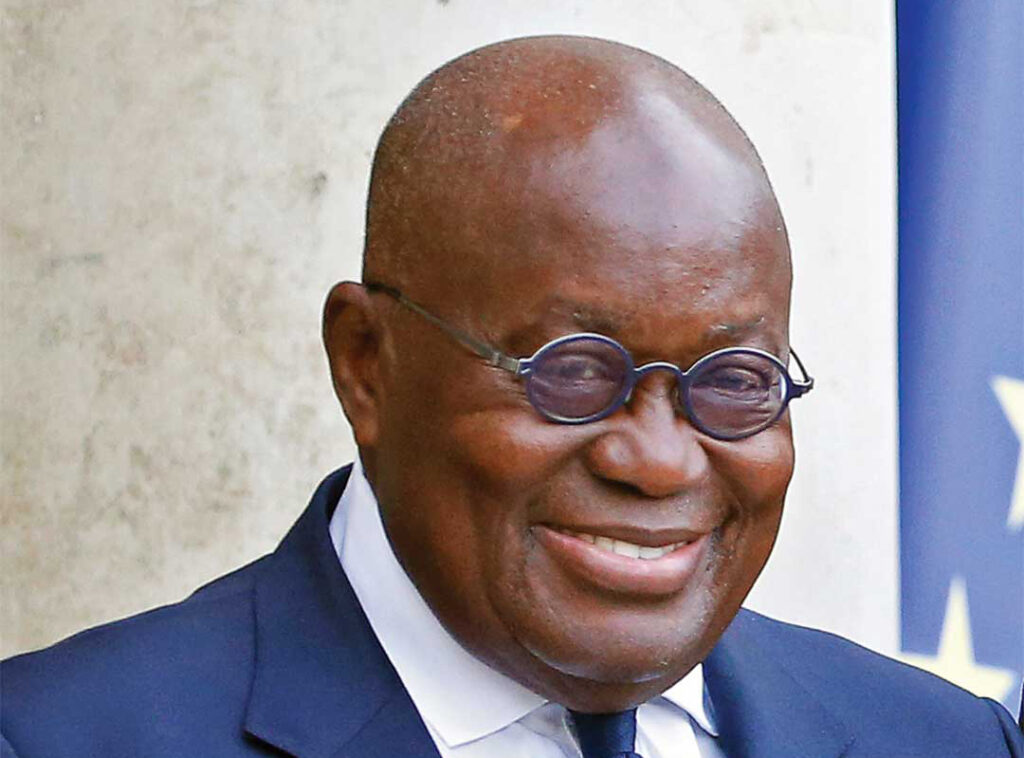Nana Addo Dankwa Akufo-Addo is president of Ghana and chairman of the Economic Community of West African States Authority of Heads of State and Government. He spoke in Accra, Ghana, on March 15, 2022, at an event organized by the African Union Department of Political Affairs, Peace and Security. His remarks have been edited for space and clarity.
Our unity and resolve should send a clear message to coup plotters that coups have never been, and will never be, durable solutions to Africa’s political, economic and security challenges. Statements condemning coups alone without corresponding action will, however, achieve little or nothing, as witnessed in recent times. This problem requires collective agreement, effective deterrence, bold action and, equally important, adequate preventive measures.
As current chairman of the Economic Community of West African States (ECOWAS) Authority of Heads of State, I have witnessed directly the devastating effects that coups d’état and attempted coups have had on the region. As some of you may know, the AU and other regional economic communities, such as ECOWAS, have identified a myriad of factors underpinning unconstitutional changes of government. Among them are, according to the AU Peace and Security Council, “deficiencies in governance, political greed, mismanagement of diversity, failure to seize opportunities, marginalization, human rights violations, unwillingness to accept electoral defeat, manipulation of constitutions and their revision through unconstitutional means to serve personal narrow interests,” and so on.
Even more worrying, the expression of social discontent by the citizenry against these factors, usually through protests, has often been met with varying degrees of repression, co-option, violence and further consolidation of the status quo.
The reappearance of coups in Africa in all its forms and manifestations must be condemned by all, since it seriously undermines our collective bid to rid the continent of the menace of instability and unconstitutional changes in government, as currently defined by the frameworks enshrined in the Lomé Declaration; the African Charter on Democracy, Elections and Governance; and other important regional and continental instruments. Unconstitutional regime changes retard a country’s growth.
As much as the drivers are largely domestic, the international dimension cannot be overlooked. Foreign involvement in fomenting unconstitutional changes, often in favor of repressive governments, foreign economic interests and other would-be geopolitical benefits, are contributory factors.
Some foreign entities regard coups in African countries as a means of enhancing their regional ambitions. As such, they engage in all sorts of disinformation campaigns in a bid to disparage the authority of democratically elected governments and instigate opposition protests against incumbents.
In implementing existing continental and regional instruments and protocols, defaulting member states are condemned and suspended from the activities of continental and regional bodies, and individual coup-makers are sanctioned. However, the reality is, these sanctions have not been applied uniformly. While we are quick to sanction military coup leaders, civilians who achieve similar ends via the manipulation of constitutions to remain in power, for example, go without sanctions, although their actions are clearly prohibited in our legal instruments. This means that the existing frameworks need to be strengthened to capture such infractions.
We do not have to look far back into history to see that a stable period of constitutional government and intelligent management of the economy leads to prosperity. I believe in Africa’s immense potential for greatness. I believe that stable democracies in Africa can help unleash energies of the African peoples to inspire the transformation of the continent. This can be Africa’s century. We can claim it if we believe in ourselves and in our peoples.

